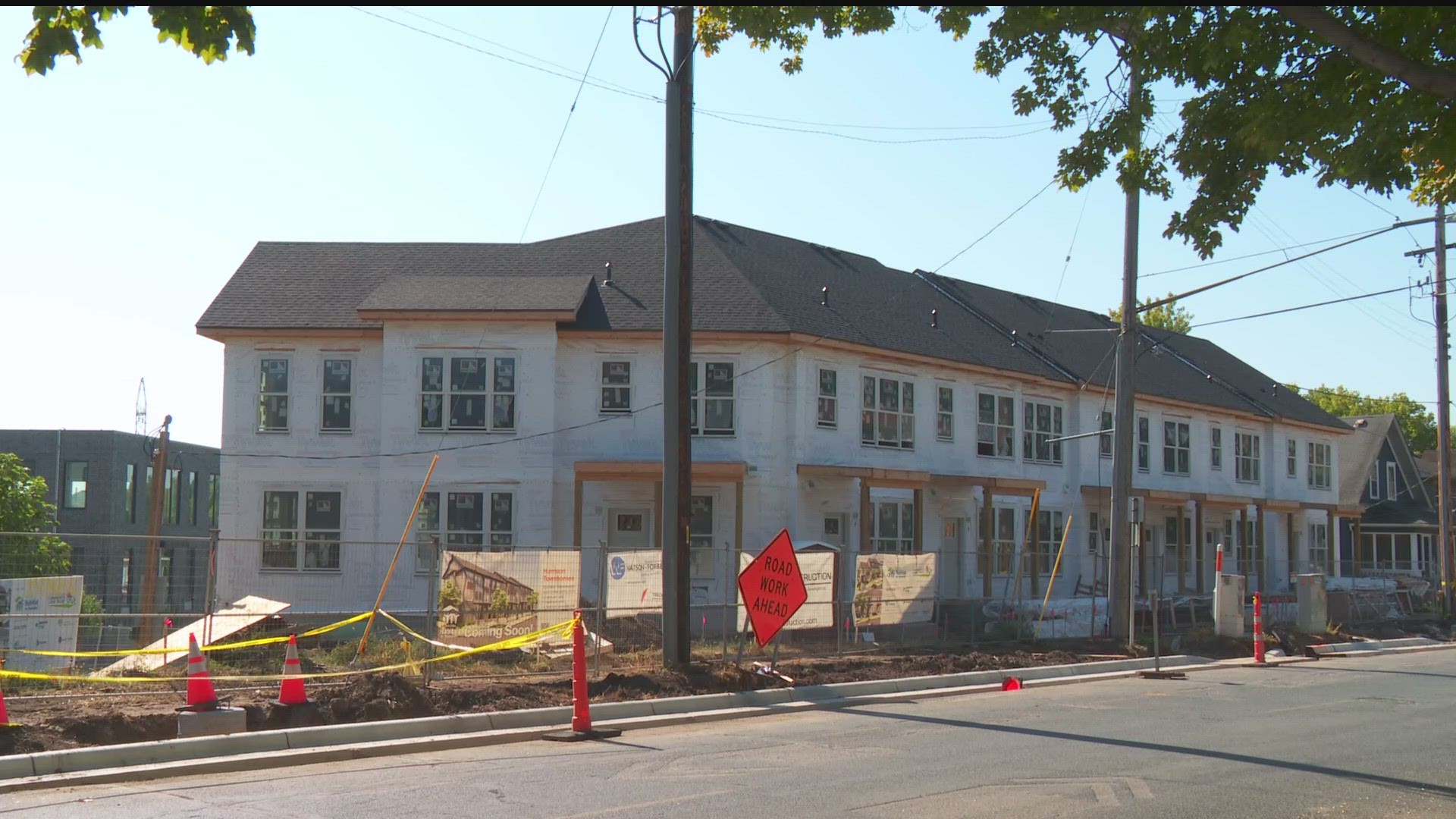MINNEAPOLIS — The city of Minneapolis is appealing this month's ruling by a Hennepin County judge, which ordered the city to stop implementing the "Minneapolis 2040" plan pending further environmental review.
Hennepin County District Court Judge Joseph Klein's order, issued on Sept. 5, granted a legal victory to the two environmental groups that served as plaintiffs. In the ruling, Judge Klein agreed with their arguments that the city's looser zoning requirements under the Minneapolis 2040 plan could cause "irreparable harm to the environment, the protection of which is viewed by this state as being of paramount concern."
"The 2040 Plan's provision for nearly 150,000 new residential units," the judge wrote, "is 100 times more than the minimum number of new unattached residential units and 150 times more than the minimum number of new attached residential units that trigger a mandatory environmental impact statement (EIS)."
The city has already filed a notice of appeal.
"This is a big deal for people that need to live in Minneapolis, people that need homes," Mayor Jacob Frey said in an interview with KARE 11. "We're going to fight this one."
Frey and the city council earned national headlines when they passed Minneapolis 2040 back in December 2018, becoming the first major city in America to eliminate single-family zoning that covered about half of the city. By encouraging the development of multi-family units and apartments in all neighborhoods, Frey's administration said the 2040 plan created 256 new units of affordable housing that would not have been authorized under previous zoning rules.
Ward 5 Council Member Jeremiah Ellison specifically pointed to the Harrison Townhomes, an affordable housing project in a residential area of north Minneapolis.
"In the case of Harrison Townhomes, we're not just talking about affordable rental being impacted, we're talking about affordable homeownership and the opportunity for Northside families to build equity," Ellison said in a statement. "Defending 2040 is a racial justice issue as much as it is a housing production and affordable housing issue."
Frey's office said the ruling could also put more than 100 other affordable units on hold.
"We've got a lot of potential right now in Minneapolis and the 2040 plan has already been shown to work effectively," Frey said. "This will impact projects that otherwise would have been ready to go, that could have housed people that need homes."
However, environmental advocates such as David Hartwell are celebrating the judge's ruling, the latest in a series of court battles over the past five years. (A similar ruling was issued last summer but did not fully hold up).
"It's about time. It's been five years. The city needs to consider the environmental consequences of this action," Hartwell said. "If you build density, you're going to have more water running through our streets, down our sewers... You're going to have more pollution. You're going to increase the heat in the city in the summer, less green space. Less desirable place to live."
In the ruling, Judge Klein did leave open the possibility that Minneapolis 2040 could continue at some point if the city can complete the environmental review. The judge gave the city 60 days to revert back to its old zoning laws under the previous "Minneapolis 2030" plan.
"We need more housing, there's no question. And that's okay. But how you do it is really important," Hartwell said. "They just didn't think about that from an environmental perspective."
Watch more local news:
Watch the latest local news from the Twin Cities and across Minnesota in our YouTube playlist:

